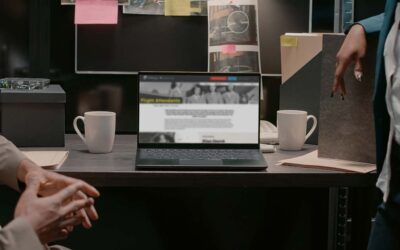Museum Digital Project Consultant: Assess and Recommend

Rachael Cristine Woody
Museum digital projects are projects that contain at least one digital element. These elements can be digitization, working with digital files, cataloging in a CMS, and publishing digital content online.
Introduction to the Museum Digital Project Consultant Series
The purpose for these projects can be a mixture of preservation and access, and even if there are some non-digital tasks to the project, the overall project is considered a digital project. The composition of museum digital projects can vary greatly. With this variability in mind, this series will highlight several digital project types where working with a museum consultant can be beneficial. Each post in this series will describe the project type and activities involved, and will outline how a consultant can help support the museum staff. This series will review the following project types:
- Assessing digital collections and making recommendations;
- Creating a digital project framework;
- Providing project management for a museum digital project;
- Selecting and implementing a museum Collections Management System (CMS); and
- Delivering digital collections training to museum staff.
This post will outline where a consultant can help with a project that requires an assessment and recommendations.
When to Consider a Consultant
Consultants are experts in specific areas of museum work. This means that in addition to possessing knowledge and experience in specific areas of work, they also have a wealth of experience working with different sizes and types of museums. Your museum should consider working with a consultant if any of the following are true:
- The expertise needed isn’t presently available on staff.
- The staff don’t have enough time (capacity) to take on the specific activity or project.
- The project has never been done before.
- The project is highly specialized or contains areas of work that are highly specialized and need outside expertise.
Digital Project Consultant Service: Assessing and Delivering Recommendations
One of the natural places to begin work with digital collections is to ascertain:
- The state of the digital collections;
- The challenges and opportunities present;
- The museum staff’s goals for the digital collections; and
- The resources needed versus the resources available.
Performing an assessment helps to inform immediate needs and long-term priorities, and it’s an activity that can be hard to perform effectively unless you’re an outside person. When you’re a museum staff member who is very familiar with the collection and its needs, it can be difficult to view the bigger picture, ask unanticipated questions, and put forth a comprehensive sense of priorities without situational bias. Additionally, bringing in an outside person can command more attention and sometimes even more respect for the recommendations made by a consultant than those made by a museum staff member.
Examples of Where a Consultant Can be Helpful
Here are a few examples of what a museum consultant can assess and offer recommendations on:
- Digital collection holdings specific to collecting mission
- Digital collection policies
- Digital collection workflows
- Digital collection acquisition process and tools
- Digital collection transfer and storage
- Digital file preservation
- Digital file management
For each of these areas it’s fairly typical for a museum to have either nothing—a policy or tool—in place, or to have something in place that’s outdated or no longer able to support all the museum needs. Regardless, having an outside expert on your side who is familiar with the latest tools and museum trends will be able to help you create, choose, or implement a policy, process, or tool to suite your museum’s specific set of needs. Additionally, having an assessment and recommendation plan from a consultant can be useful when you make your case to the board, donors, or granting agencies as to why the next digital project should be prioritized and funded. This type of externally-generated (by the consultant) documentation helps demonstrate you’ve done your homework and it can be fairly persuasive.
Conclusion
If you’re at the beginning of launching (or re-launching) a digital collections effort at your museum, beginning with a digital collections assessment is a great way to start. Receiving and incorporating expert-informed recommendations can help you set a smooth foundation for your future digital project work.

Rachael Cristine Woody
Never miss another post. Subscribe today!
Similar Posts
An Introduction to Scrollytelling for Museums
Discover how museums use scrollytelling and digital storytelling platforms to create immersive narratives. This introduction explores key concepts and approaches to interactive storytelling.
Exploring Self-Determinate Multiple Pathways: An Example of Digital Storytelling
Discover how self-determinate multiple pathways offer flexible interactive storytelling in museum exhibits. Learn from the Tenement Museum’s ‘Your Story Our Story.’
Digital Museum Storytelling Example: A Look at Self-Determinate Linear Pathways
Self-determinate characteristics on a linear pathway go beyond brief sidebar topics and instead offer alternative ways to navigate the linear pathway.
Digital Storytelling in Museums: The Prescriptive Linear Pathway in Action
Rachael Woody emphasizes that storytelling is key to engaging audiences with collections. One effective approach? The prescriptive linear pathway—a simple yet powerful method for guiding visitors through digital exhibits.






Leave a Comment
Comments are reviewed and must adhere to our comments policy.
0 Comments